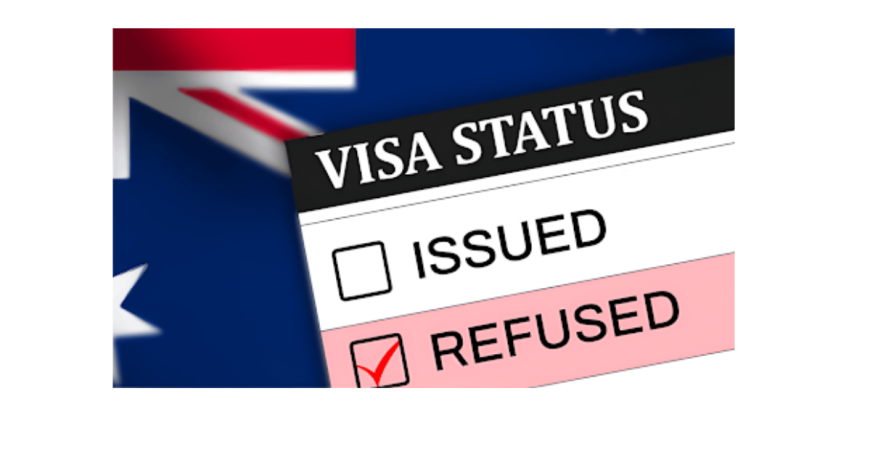Securing a visa to live, study, or work in Australia is a dream for many. However, this dream can quickly turn into a nightmare due to visa cancellations and refusals, a growing concern among migrants. With increased scrutiny and evolving immigration laws, many applicants find their Australian visa cancellations and refusals due to avoidable reasons.
Understanding why visas might be refused, whether you are a student, a skilled worker or a tourist can help you avoid costly mistakes and better prepare your application. Let’s explore the most common visa cancellations and refusals reasons, tips on avoiding them and ways Classic Migration can support you in the appeals or reapplication process.
Top Reasons Why Visa Applications Are Cancelled or Refused
Applying for an Australian visa can be complicated, and even a small mistake can cause your application to be rejected or cancelled. Whether you are applying for a student, work or visitor visa, you should learn the requirements for immigration officers. Lots of people fail to get a visa because they didn’t follow the procedures or didn’t include the needed documents. Below are some of the most common reasons of visa cancellations and refusals in Australia:
- Incomplete or Incorrect Documentation
- Failure to Meet Health or Character Requirements
- Failure to Meet Financial Criteria
- Non-compliance with Previous Visa Conditions
- Do not have a genuine intention to stay temporarily in Australia
- Previous Immigration History
- Failure to Meet English Language Requirements
1. Incomplete or Incorrect Documentation
One of the most common reasons of visa cancellations and refusals reasons is that the documents are incomplete, inconsistent or incorrect. The Department of Home Affairs asks applicants to submit certified proof of their claims. If you do not have all the documents, your application documents are not real, or they do not match what you said in your application, your visa may not be granted or may be granted late.
Tip: Make sure your submitted documents are complete, accurate, up-to-date and translated into English if necessary.
2. Failure to Meet Health or Character Requirements
Australia requires strict health checks and character to protect public health and safety. If you do not meet these requirements, you might face visa cancellations and refusals.
- If a person has active tuberculosis, HIV/AIDS (in some cases) or conditions that are very expensive to treat, they may be refused entry.
- Being denied character means the person has a criminal record, is involved with criminal groups or did not meet the requirements for a character test under Section 501 of the Migration Act.
Tip: Always include your health and criminal history in your application. You may still be eligible, depending on individual circumstances.
3. Failure to Meet Financial Criteria
Applicants must prove they have enough money to cover their living expenses (and those of their dependents) while in Australia. This includes:
- Bank statements
- Sponsorship letters
- Proof showing that you have a job or regular income
If the Department thinks that you are unable to support yourself or could rely on public services, your application might be denied.
Tip: Make sure to provide clear, verifiable financial evidence, avoid inflating income or assets and don’t try to make them seem bigger than they are.
4. Non-compliance with Previous Visa Conditions
Immigration officials consider it very serious if you do not follow the rules of a visa that was previously granted to you. This suggests that you don’t respect Australian laws or visa conditions in the future. The rules includes:
- Working at times that are not allowed under the student visa (for example, exceeding the allowed work hours)
- Staying in the country after the visa expires
- Missing classes or not reporting when expected
- They may result in a visa being cancelled and make it harder to get a visa in the future.
Tip: Always be aware of and follow all the rules of your visa. Not knowing the rules is not seen as a good reason.
5. Do Not Have a Genuine Intention to Stay Temporarily in Australia
Applicants for temporary visas (such as for visiting or studying) must show that they only plan to stay temporarily. If the immigration officer believes you are trying to use a temporary visa to become a permanent resident, your application might be denied under the Genuine Temporary Entrant (GTE) requirement.
Tip: It is important to write a Statement of Purpose that explains your plans for the near future and your plans for the future in your home country.
6. Previous Immigration History
How you immigrated to the Australia is important. If you have been refused a visa, overstayed your visa, been deported from Australia or any other country or committed immigration fraud, this can lead to a new visa cancellations and refusals.
Tip: Do not hide if you have had a visa application refused in the past. If you try to hide it, people may consider your actions deceptive, which could lead to visa cancellation or refusal.
7. Failure to Meet English Language Requirements
For study and skilled visa categories, failing to provide acceptable English language test scores (such as IELTS, PTE, and TOEFL) is a key reason for refusal. Many applicants either fail to take this requirement seriously or submit old or invalid test scores.
Tip: Remember to treat your English language test seriously. Check that your test score matches the requirement and is still valid when you apply.
How Classic Migration Can Help You Overcome Visa Refusals and Cancellations
Getting your visa cancellations and refusals can be stressful, but it doesn’t mean your chances are over. Classic Migration is ready to assist you. The team of experts will analyse your case, tell you what happened and advise you on what to do next.
If you have to either challenge the decision or reapply, they will guide you and make certain your application is well-prepared and meets all the requirements. We also help you understand your visa conditions clearly so you can avoid similar issues in the future.
Many have managed to fix their visa troubles and accomplish their goals in Australia with the help of Classic Migration.
Want to know more? Explore our other blogs for simple, helpful advice on Australian visas, migration tips, and ways to improve your chances of approval. Our goal at Classic Migration is to help you get your visa without stress.
FAQ On Visa Cancellations and Refusals
1. What happens if my visa is cancelled?
If your visa is cancelled, you will be seen as an unlawful non-citizen and may have to leave Australia right away. Depending on the reason for the cancellation, you might face a ban from entering the country or face legal problems. You also risk complications in applying for future visas unless the matter is properly resolved.
2. Can I appeal a visa refusal or cancellation?
Yes, it is possible to appeal many visa refusals and cancellations at the Administrative Appeals Tribunal (AAT). However, you usually need to comply within 21 days from the date of the decision. Not every visa type allows for an appeal, so get advice from a registered migration agent as soon as you can.
3. How can Classic Migration help with visa refusals or cancellations?
We go through your situation and give you the best advice on what to do. We assist you in making an appeal or applying again, checking that your documents are correct and meet all the rules. We will appear at AAT hearings with you, using our current knowledge of immigration law to help you win.




